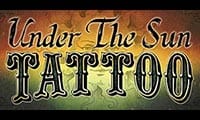White Christmas
 The Christmas season is one of beloved traditions. From music we sing and hear to the menu of dishes we customarily enjoy for a Christmas feast to the decorations we hang around the house, the holiday is a time to return to the things that make the season special.
The Christmas season is one of beloved traditions. From music we sing and hear to the menu of dishes we customarily enjoy for a Christmas feast to the decorations we hang around the house, the holiday is a time to return to the things that make the season special.
One song may be more familiar than most. “White Christmas” is not just a Christmas song; the version sung by Bing Crosby is considered to be the best-selling single of all time.
I’m dreaming of a white Christmas just like the ones I used to know
Where the treetops glisten and children listen to hear sleigh bells in the snow
I’m dreaming of a white Christmas with every Christmas card I write
May your days be merry and bright, And may all your Christmases be white
“White Christmas” earned its place in music history and its regular spot in the rotation of Christmas music through talented writing, good timing for its melancholy mood, and memorable use in film.
The talent behind the music and lyrics was Irving Berlin, one of the great songwriters of all time and a true only-in-America success story. He was born Israel Beilin in the Russian Empire of the late nineteenth century and emigrated with his family to the United States in 1893. He picked up his musical talents growing up in New York, and when the sheet music of his first published tune in 1907 misnamed him as “I. Berlin,” he became Irving Berlin going forward.
His musical output varied from popular music (“Alexander’s Ragtime Band” was his first major hit) to patriotic tunes (“God Bless America,” which has become an unofficial national anthem of sorts) to musicals (This is the Army was a hit on Broadway and later as a movie featuring Ronald Reagan), even to campaign jingles (“I Like Ike” rallied voters for Dwight D. Eisenhower’s presidential victories).
But it was of “White Christmas” that Berlin supposedly bragged to his secretary that not only was it the greatest song he wrote, but that it was the greatest song anybody had ever written.
The song was first sung by Bing Crosby on the radio on Christmas Day 1941, soon after the United States entered World War II. Its wistful lyrics would speak to the millions of Americans who would soon find themselves engaged in the war effort far from home.
That war backdrop also influenced the eventual film version of “White Christmas,” released in 1954 and starring Crosby, Danny Kaye, Rosemary Clooney, and Vera-Ellen. It was not the first film to feature the song, but it became a classic of the season.
Crosby and Kaye play veterans who find their former general running a struggling hotel in Vermont during an unusually warm winter. On Christmas Eve, they stage a show to cheer up the general with all the men of their old unit, and as snow finally falls, they sing the title song.
One of my favorite memories related to the theme of the song is from when I was young. The weatherman called for flurries on Christmas Day. I woke up on Christmas morning and the flurries looked heavy. By mid-morning, the ground was covered. At 6pm, I measured the snow in my backyard in Salem and the “flurries” reached twelve inches of snow.
For millions, the song and the film have become an integral part of the holiday season, a product of a particular time and place that can resonate with anybody. In that way, it is like the fundamental meaning of Christmas – the birth of one child in the unusual setting of a manger, yet who offers to all hope and redemption.
Whether this year’s Christmas is white or not, I wish you and your loved ones a very Merry Christmas and a Happy New Year.
If you have questions, concerns, or comments, feel free to contact my office. You can call my Abingdon office at 276-525-1405, my Christiansburg office at 540-381-5671, or my Washington office at 202-225-3861. To reach my office via email, please visit my website at www.morgangriffith.house.gov. Also, on my website is the latest material from my office, including information on votes recently taken on the floor of the House of Representatives.
–Representative Morgan Griffith









